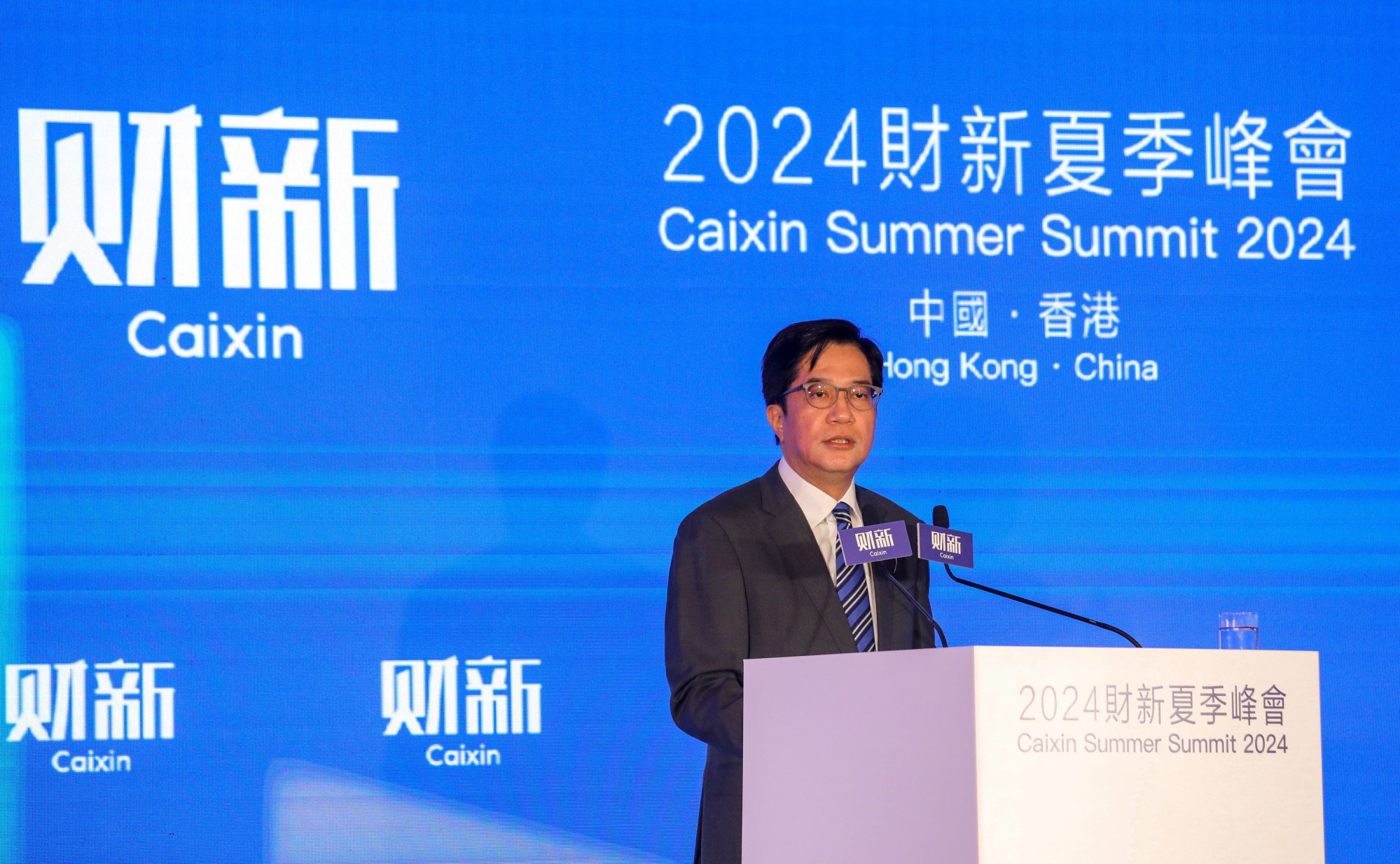“Hong Kong is working very hard to contribute to the further internationalisation of renminbi,” said Wong. “We will continue issuing international bonds denominated in renminbi.”
Last year, the city’s yuan loans jumped by 140 per cent, and offshore yuan bonds increased by over 60 per cent, Eddie Yue Wai-man, the HKMA’s chief executive, said at the same conference.

“Whether it’s financing or investment, we hope to continue developing the offshore renminbi market in Hong Kong, making the flow of funds smoother, especially strengthening our ties with major trading partners in the Middle East and Asean [the Association of Southeast Asian Nations],” he said.
“The growth [of yuan] has been particularly fast in the past two years, especially in its use in the real economy in cross-border trades,” said Yue. He said the currency accounts for 30 per cent of China’s cross-border goods trade settlements, double the proportion two years ago.
The HKMA, Hong Kong’s de facto central bank, plans to help the government issue more long-term bonds, maturing in 10, 15 or 20 years, denominated in offshore yuan, to support infrastructure projects, leading to further development of the offshore market for the currency.
Wong would also like to encourage public and private institutions in mainland China to issue offshore yuan bonds, including green and social bonds, in Hong Kong.
“Over the past decade, we have clearly seen the huge opportunities brought by connectivity,” he said.
“We hope that this mutually beneficial, win-win connectivity arrangement can cover more investment products and opportunities in the future,” Wong said.
“Our financial institutions should help propel the successful transformation of some Chinese enterprises into multinational corporations,” Zhang Yichen, chairman and CEO of Citic Capital Holdings, said during a panel discussion at Friday’s summit.
“During this process, Hong Kong, as an international financial centre … particularly with the advantage of ‘one-country-two systems’, should undoubtedly leverage its strengths and play an important role as a hub and superconnector.
“Hong Kong’s status as an international financial centre is irreplaceable by any other cities in China.”
Laurence Li Lu-jen, chairman of the Financial Services Development Council, an industry advisory body to the Hong Kong government, said on the same panel that the city will become “China’s London” as long as China is on track to become the world’s largest economy one day.
“We hope to work together with everyone to tell the Hong Kong story well, driving Hong Kong’s economy to a higher level and contributing our part to the country’s high-quality development,” Wong said.

